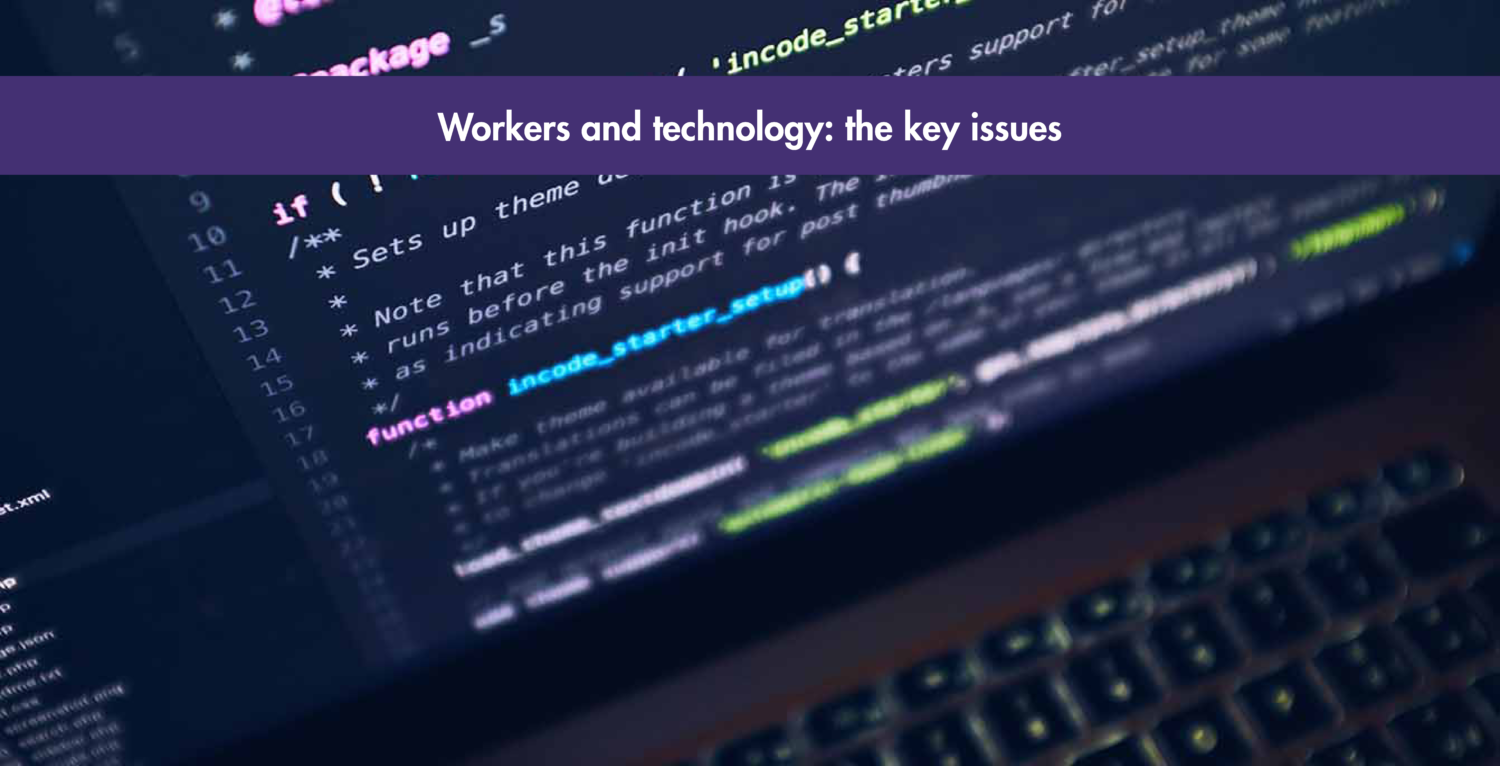Intelligent futures
Artificial intelligence is reshaping our lives and it has the potential to change the way we work too. Redefining labour in the age of AI will mean rethinking the role of workers too, writes Ivana Bartoletti.
Artificial intelligence (AI) is everywhere, and it is changing the way we live, think and make decisions – and have decisions made about us.
There is no part of our life which is untouched by this new transformative technology. Insurance, medical care, mortgages, transport, policing, bail and parole, newsfeeds, political and commercial advertising: you can pick almost any issue or industry and see AI shifting the landscape.
Where and how do we start mapping this AI-driven world we are tumbling into? The future of work seems a good starting point.
But first, what is AI? There is perhaps no single accepted definition, but we can agree AI is where a machine performs a task traditionally achieved using human intelligence. Human intelligence is the ability to read and adapt to our surroundings and make decisions based on experience and external situations. Algorithms, the maths underpinning AI, can do exactly that – they learn, predict, and act.
We are still far from so called artificial general intelligence, which we see in the movies and in sci-fi literature – computers and robots with feelings, tears, laughter and proper human behaviour – but we might one day get there.
Algorithms that can learn the symptoms of Parkinson’s disease are an example of AI in action. They can predict its onset at an earlier stage than a human doctor could. An algorithm can be so familiar with an older person’s usual movements it can detect immediately if something has gone wrong and alert the GP. AI can give voice to chatbots, drive cars without drivers, navigate through our Satnav, assist us when we do homework or help us with repetitive tasks.
So far so good? To a point, and here comes the politics. AI is much more than technology. Take a look at China to see this clearly. China’s digital rise has been incredible, and the country is making headway in achieving global leadership in 5G, AI and quantum computing through a comprehensive digital strategy established by the Chinese Communist Party (CCP). The CCP’s strategy is rooted in solid coordination between private and state interests. Chinese e-commerce made up 42 per cent of the global market in 2017 (source: World Economic Forum). It is generally recognised that this rapid rise in tech has happened along with very patchy labour conditions. In the same e-commerce sector, the proliferation of activities, online shops and services has led to a rapid decrease in quality and a deterioration of workers’ condition as well as a race to the bottom in prices.
Let’s also look at the US which is also heavily investing in AI. Between them, China and America account for some of the largest data-driven companies – Amazon, Facebook and Google in the US and China’s giants Baidu, Alibaba and Tencent. Getting data in is key to training algorithms to get decisions out, hence the predominance in the digital and AI space of both China and the US. What about Europe? Deepmind was in the UK before it went to Google but, right now, we Europeans do not have the same giant companies to put into the global ring.
What we are witnessing right now is a real race in AI with countries equipping themselves with strategies to compete globally.
AI is a transformative technology, not just another piece of tech. It is reshaping the way we work and spend our time, and it is likely to reshape geopolitics, too. Not only because of the global race for data, but because the countries which are most reliant on the jobs which are going to be replaced by AI are going to be the ones that suffer the most from the change, and that is going to influence geopolitics and global dynamics. We do not know how this is going to pan out yet but one thing is certain – it is not going to happen overnight. Machines and humans are going to work alongside each other for decades to come and it is likely that machines will augment the capabilities of doctors, radiographers and accountants rather than replace them.
However, there is another aspect which is often overlooked. The impact on jobs and work is not just related to job losses and the new roles which will emerge in their place.
As organisations and governments start to grapple with the concepts of AI, blockchain and big data transforming the way they work, key questions need to be asked around the role of workers in this whole process.
What we have seen over the last few months is a real awakening of civic society and workers alike over what technology is used for. San Francisco has just banned the use of facial recognition, demonstrating that citizens must have a say when it comes to technologies deployed to surveil them. Employees at Google staged a truly effective protest when the company established its ethics board as the board included controversial conservative figure.
This is a watershed moment: these workers, who went public with their experience and gained worldwide support, are safeguarding us all against the opacity and unaccountability of the deployment of AI.
Employee participation in AI driven transformation is crucial and I would like to see workers and citizens front and centre when we talk about the ethics of AI. For example, should AI governance mean that employees can sit on a (proper) ethics board? The recent guidelines for trustworthy AI developed by the High Level Group of AI of the EU commission are pretty clear in suggesting they should. Algorithms must be assessed not just measuring whether they work or not, but also in relation to their impact on workers and wider society. Prospect in the UK and UNI Global Union at international level are right to raise these issues.
Redefining labour in the age of AI means rethinking the role of workers in this too. We can talk about the ethics of AI, and how we make algorithms fair, but this should not overshadow the real question: what is AI for, and what is going to improve for workers and citizens alike? How we square this in productivity terms in the face of the competition from China is a separate matter and will probably require a new role of the state in fostering technological innovation – but the global race for AI challenges us all, and the perception of the world and demands what humanity means in the age of the artificial.

